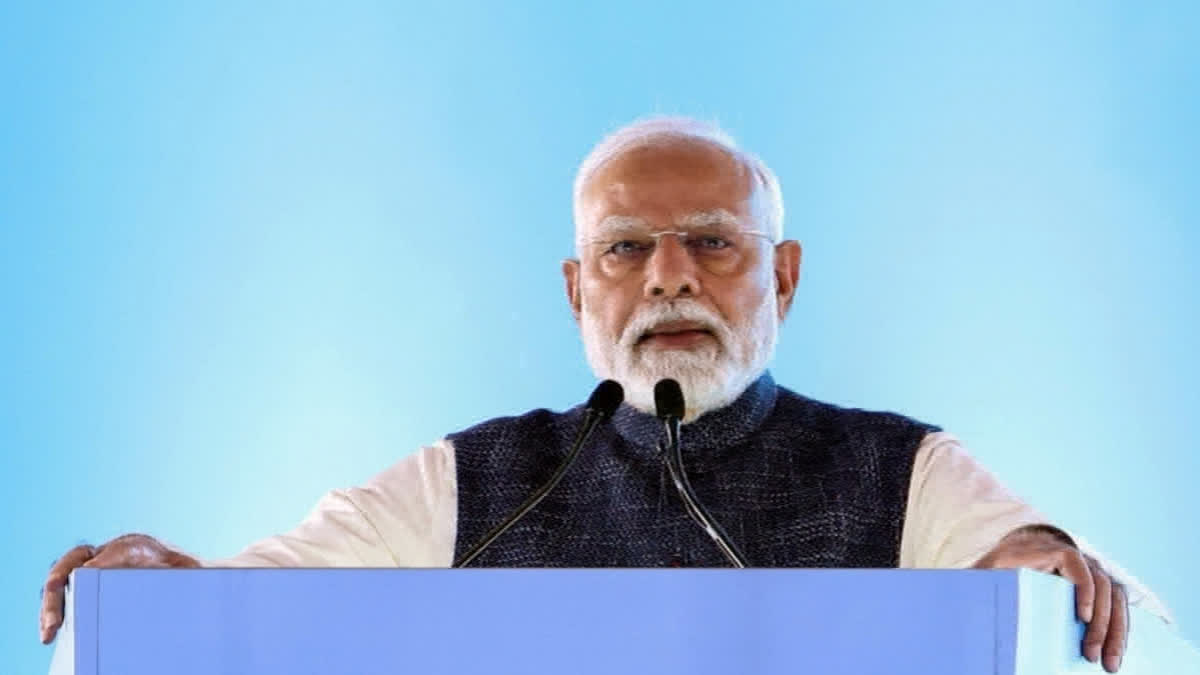By Surabhi Gupta
New Delhi: In a landmark move for India's biotechnology sector, Prime Minister Narendra Modi on Thursday unveiled genome sequencing data of 10,000 Indian nationals. The announcement marks a significant milestone in genomics research and will help researchers globally explore India’s immense genetic diversity. The genome data has been archived at the Indian Biological Data Centre (IBDC) and is now available through managed access for researchers worldwide.
A Step Toward Biotechnology Revolution
Addressing the Genomics Data Conclave via a video message, PM Modi called the Genome India Project a pivotal step in the nation’s scientific and technological journey. “This national database will facilitate advancements in the treatment of genetic and infectious diseases, foster precision medical techniques, and deepen our understanding of diverse genetic variations,” he stated.
The Genome India Project, initiated in January 2020 by the Department of Biotechnology (DBT), aims to construct a comprehensive genetic map that reflects India’s rich genetic diversity. The project involved sequencing the genomes of 10,000 individuals from diverse Indian populations and creating a reference database for genetic research.
A Treasure Trove for Genomics Research
Dr Suchita Ninawe, a senior official at DBT and a key architect behind the Genome India Project, highlighted the significance of the initiative during an exclusive conversation with ETV Bharat.
"In the Genome India Project, we sequenced the entire genome of 10,000 individuals to identify all genetic variants. This data enables us to create a reference genome unique to Indians," she explained. Drawing parallels to languages, she described the genome as a sequence of biological “letters,” DNA bases, unique to every individual.
Dr Ninawe emphasised the practical benefits of this initiative, particularly in healthcare and medical research. "For instance, sickle cell anaemia, which is prevalent in specific populations, might be linked to unique genome sequences. By identifying such variations, we can better understand the genetic predispositions of particular populations and develop targeted treatments," she added.
She also underscored the accessibility of the genome data under India’s Biotic Pride guidelines, which include open access, managed access, and restricted access. “Today, our Science Minister announced a call for proposals to fund projects based on this data. Selected researchers will gain access to Genome India data through IBDC, ensuring it benefits Indian scientists," she noted.
Implications for Biotechnology and Healthcare
Genome sequencing involves decoding the entire DNA sequence of an organism, which comprises three billion base pairs organised into 23 chromosomes. This data serves as the blueprint for understanding how organisms grow, adapt, and respond to diseases.
By mapping genetic variations across India’s population, the Genome India Project aims to create a robust resource for genomics research. The database will enable the development of precision medicine, help design genome chips for large-scale genetic studies, and contribute to the advancement of personalised healthcare solutions.
At the conclave, Dr Jitendra Singh, Science and Technology Minister, announced the release of data from 10,000 genome samples. He highlighted its potential to accelerate medical research and drive innovation in biotechnology. “This initiative will facilitate the development of mRNA-based vaccines, precision medicine, and biomanufacturing, reinforcing India’s position as a global biotechnology leader," he said.
India’s Bioeconomy on the Rise
The Genome India Project is part of a larger vision to transform India into a global biotechnology hub. Dr Singh outlined the strides India has made in this field, with the country’s bioeconomy surging from $10 billion in 2014 to over $130 billion in 2024.
India now ranks 12th globally in biomanufacturing and 3rd in the Asia-Pacific region. It is also the world’s largest vaccine producer and boasts a thriving startup ecosystem, with the number of biotech startups growing from 50 in 2014 to nearly 9,000 in 2024.
Dr Singh stressed the importance of using Genome India data to further India’s healthcare initiatives. “This data will play a vital role in the large-scale manufacturing of vaccines and proteins and could even support cancer research by partnering with institutions like Tata Memorial Hospital,” he said.
Building a Collaborative Research Ecosystem
The Genome India Project is a collaborative effort involving over 20 leading institutions, including the Indian Institutes of Technology (IITs) in Delhi, Madras, and Jodhpur; the Indian Institute of Science (IISc), Bengaluru; the Council of Scientific and Industrial Research (CSIR); and the Biotechnology Research and Innovation Centre (BRIC).
The project also features a user-friendly platform, the Framework for Exchange of Data Protocols (FeED), which facilitates seamless data access for researchers. By making data available through IBDC, the initiative ensures that Indian scientists lead the way in leveraging genomic information.
Shaping the Future of Genomics
“This data is a treasure for genomic scientists,” Dr Suchita Ninawe concluded. “It will open doors to new discoveries in biosciences, medicine, and healthcare, ultimately transforming the way we understand and address genetic diseases."
